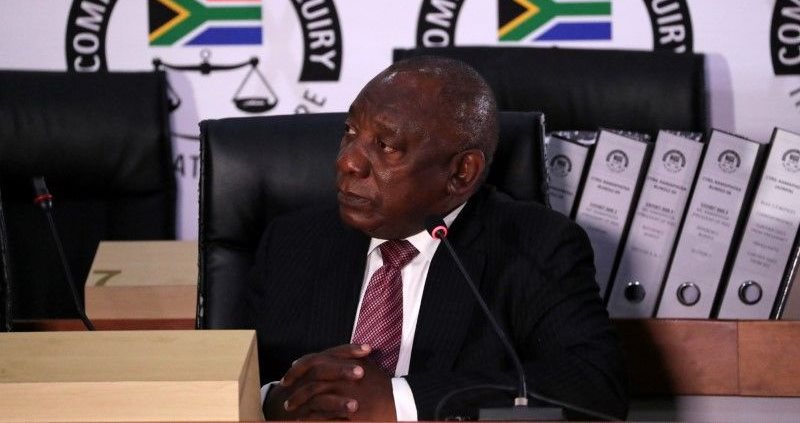Curtain (almost) closes on Zondo commission with words of hope from Ramaphosa

“I can’t wait for the day I hand over the report, and know that I’m done and leave it to you, Mr President and maybe others to decide what to do with the report,” Zondo said.
Ramaphosa on the other hand described the inquiry as the “final washing machine” to cleanse South Africa of corruption and state capture. He commended the work of government institutions and civil society organisations in fighting to rid the public sector of corruption.
“We are taking corrective measures to obliterate state capture. It will take time, but we’re going to stay the course. The progress that has been made over the last two and a half years should, I hope, stand as a testament to my own commitment, and the commitment of the administration that I lead to deal decisively with corruption and state capture,” he said.
He thanked Zondo for the “great service” that he has given to the country in chairing the process. “I have every confidence, chair that no matter what the challenges are that lie ahead, that we will talk this path together. We will prevail.”
Ramaphosa also highlighted challenges relating to funding for the commission in order to continue the life of the process, adding that it has been worth every cent spent on it.
Zondo also thanked the president for his co-operation and that of his office. “That has been very important to the commission as a whole. We appreciate it very much,” he said.
For the most part of the day, Ramaphosa answered questions relating to accountability within both the ANC and the state in light of the emergence of alleged state capture. He told the commission that he threatened to resign in December 2015 after his predecessor Jacob Zuma dismissed a well performing Nhlanhla Nene as finance minister. It was only through the intervention of several leaders within the ANC such as then secretary-general Gwede Mantashe and his deputy Jessie Duarte that Zuma backtracked on his appointment of Des van Rooyen and appointed Pravin Gordhan.
This was because, Ramaphosa said, it became clear that the state capture project was being moved into National Treasury, a move that was not going to end well for the state.
Asked by evidence leader Advocate Paul Pretorius why there was inertia from within the ANC against what was clearly a gradually growing problem of the Guptas taking over state resources, Ramaphosa said the party’s leadership was “blindsided” by the family’s close relationship with Zuma. He commended the courage of transport minister Fikile Mbalula in admitting before a national executive committee meeting that he learned from Ajay Gupta of his appointment to the sports and recreation portfolio in 2010. The same courage was shown in a later meeting that questioned the dismissal of Gordhan and his deputy Mcebisi Jonas in March 2017 on the basis of a bogus intelligence report implicating them in criminal activity.
To a further question on his approach to dealing with corruption as deputy president, Ramaphosa replied that he took the decision to not raise the alarm while in office so as not to risk being fired by Zuma. It was not the self-interest of staying in the position that motivated him, however, but a strategy of fighting silently for an opportunity to take the reins and begin the work of rooting out capture. Ramaphosa contested and won the position of ANC president at the ANC’s 54th national elective conference in Nasrec, Johannesburg. He took up the position of president in February 2018.
During his testimony, he told Zondo that the country had reached rock bottom and things could not get any worse, which means that the work of the commission and the report that it will produce, are important milestones in the journey towards ridding the state of capture.
But Zondo warned that pinning hopes on a process that may very well be subjected to review applications after the report is made available, was not the only option.
He revealed that although the commission had planned that Ramaphosa would be the final witness, there are still matters outstanding that may require the commission’s attention. These will be communicated with the public in due course, said Zondo.
This article was originally published on Corruption Watch.
About Valencia Talane
- Eskom pre-payments to Tegeta enabled by willing agents - 13 May 2022
- NPA should probe Zwane for FS housing mess, says Zondo - 12 May 2022
- Eskom board complicit in Koko suspension ruse - 11 May 2022
- Patriotic South Africans save Treasury from Gupta "tentacles" - Zondo - 10 May 2022
- Liquor bills and Range Rovers - Zondo wants former DG charged for corruption in asbestos "debacle" - 9 May 2022
View my profile and articles...